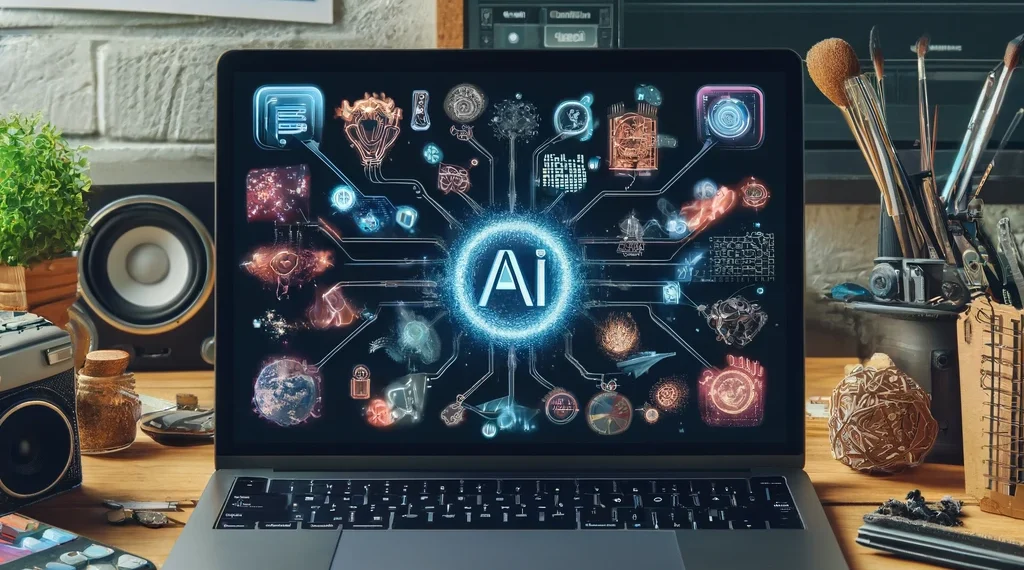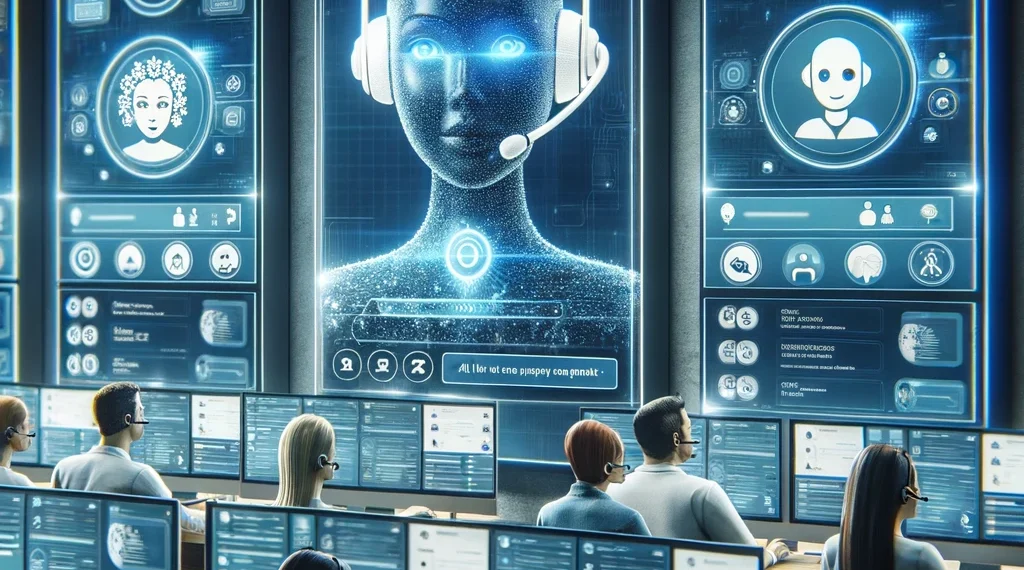Table of Contents
Toggle20 Ways AI and ChatGPT Revolutionize Your Life: Unlock Incredible Productivity and Growth
Introduction
Artificial Intelligence (AI) and ChatGPT have taken the world by storm, revolutionizing how we approach everyday tasks, professional work, and personal development. These technologies are not just about futuristic robots or sci-fi dreams; they’re here and now, transforming lives across various fields. In this blog post, we’ll explore 20 ways AI and ChatGPT can revolutionize your life, unlocking incredible productivity and growth.
1. Productivity Boost
Q1: How can AI and ChatGPT automate daily tasks?
AI and ChatGPT can automate routine tasks such as setting reminders, sending emails, managing schedules, and even booking appointments. This automation helps free up your time, allowing you to focus on more important and creative activities.
Q2: What productivity tools are enhanced by AI?
AI enhances various productivity tools like task managers, project management software, and note-taking apps. These tools become smarter, offering features like predictive text, automated organization, and intelligent reminders.
Q3: How does ChatGPT function as a personal assistant?
ChatGPT can handle tasks such as managing your calendar, reminding you of appointments, drafting emails, and generating to-do lists. It acts like a virtual personal assistant, helping you stay organized and efficient.
Q4: Can AI help with scheduling and time management?
Absolutely. AI can analyze your schedule, suggest optimal times for meetings, and even prioritize tasks based on deadlines and importance, helping you manage your time more effectively.
Q5: How do AI-powered reminders and notifications work?
AI-powered reminders and notifications use intelligent algorithms to determine the best times to send alerts, ensuring you never miss important tasks or deadlines.
Q6: What are the benefits of using AI for email drafting?
AI can draft emails based on your instructions, ensuring they are well-written and error-free. It can also suggest responses and help manage your inbox efficiently.
Q7: How can AI improve task management and organization?
AI can categorize and prioritize tasks, set deadlines, and provide reminders. It can also integrate with other tools to create a seamless workflow, enhancing overall task management.
Q8: How does ChatGPT handle repetitive tasks?
ChatGPT can automate repetitive tasks such as data entry, report generation, and customer responses, reducing the workload and increasing efficiency.
Q9: What are the limitations of AI in boosting productivity?
While AI is powerful, it requires proper setup and training to be effective. It may also struggle with tasks that require deep understanding or human judgment.
Q10: How can AI and ChatGPT be integrated into existing productivity systems?
AI and ChatGPT can be integrated through APIs and software plugins, allowing them to work seamlessly with your existing productivity tools and systems.


2. Content Writers
Q1: How can AI help content writers generate ideas?
AI can analyze trending topics, keywords, and audience preferences to generate fresh and relevant content ideas, helping writers overcome creative blocks.
Q2: What are some ways AI can streamline content creation?
AI can assist in outlining, drafting, and editing content. It can also provide suggestions for improving readability and SEO, making the writing process more efficient.
Q3: Can ChatGPT assist in overcoming writer’s block?
Yes, ChatGPT can provide prompts, generate text based on your input, and offer inspiration, helping writers get past creative hurdles.
Q4: How effective is AI in editing and proofreading content?
AI tools like ChatGPT can detect grammar and spelling errors, suggest style improvements, and ensure consistency in tone and voice, enhancing the quality of the content.
Q5: What are the benefits of using AI for SEO content writing?
AI can optimize content for search engines by suggesting relevant keywords, structuring content for better readability, and ensuring proper use of meta tags and headers.
Q6: How does ChatGPT compare to traditional content writing tools?
ChatGPT offers advanced capabilities such as natural language processing and machine learning, providing more accurate and contextually relevant suggestions compared to traditional tools.
Q7: Can AI help in maintaining a consistent writing style?
Yes, AI can analyze previous content and ensure new content matches the established style, tone, and voice, maintaining consistency across all written materials.
Q8: How does AI ensure content originality?
AI can generate unique content and cross-check it against existing texts to avoid plagiarism, ensuring the content is original and fresh.
Q9: What are the limitations of using AI for content writing?
AI may struggle with understanding nuanced contexts or cultural references and might require human oversight to ensure the highest quality.
Q10: How can content writers integrate AI into their workflow?
Content writers can use AI tools for brainstorming, drafting, editing, and SEO optimization, integrating them into their existing writing processes to enhance productivity and quality.


3. Students
Q1: How can AI assist students with homework?
AI can provide step-by-step solutions, explanations, and resources for homework problems, helping students understand and complete their assignments more effectively.
Q2: What types of study support can ChatGPT provide?
ChatGPT can offer tutoring in various subjects, provide summaries of complex topics, generate practice questions, and even help with exam preparation.
Q3: How does AI simplify complex concepts for students?
AI can break down complex concepts into simpler, more digestible parts, using analogies, examples, and visual aids to enhance understanding.
Q4: Can AI help students learn new languages?
Yes, AI-powered language learning tools can provide interactive exercises, pronunciation practice, and instant feedback, making language learning more engaging and effective.
Q5: How effective is ChatGPT in providing explanations for difficult subjects?
ChatGPT can offer clear, concise explanations tailored to the student’s level of understanding, making difficult subjects more accessible.
Q6: What are the benefits of using AI for studying?
AI provides personalized learning experiences, tracks progress, identifies areas of improvement, and offers targeted practice, enhancing the overall study experience.
Q7: How does AI enhance the learning experience for students?
AI can create interactive learning modules, provide real-time feedback, and adapt to individual learning styles, making education more engaging and effective.
Q8: Can AI be used for group study sessions?
Yes, AI can facilitate group study by providing collaborative tools, generating discussion topics, and helping manage study schedules and tasks.
Q9: What are the limitations of using AI for educational purposes?
AI may not fully replace the need for human teachers, especially in areas requiring emotional support, mentorship, or complex problem-solving.
Q10: How can students maximize the benefits of using AI for their studies?
Students can use AI tools for personalized learning, regularly engage with AI-generated content, seek help with challenging topics, and integrate AI into their daily study routines.


4. Developers
Q1: How can AI help developers with code generation?
AI can generate boilerplate code, suggest code snippets, and even write entire functions based on user input, speeding up the development process.
Q2: What are the benefits of using ChatGPT for debugging code?
ChatGPT can identify syntax errors, suggest fixes, and provide explanations for common bugs, making the debugging process more efficient.
Q3: Can AI assist developers in learning new programming languages?
Yes, AI can provide tutorials, examples, and interactive coding exercises for various programming languages, helping developers learn new skills.
Q4: How does AI automate documentation and comments?
AI can generate documentation and comments based on code analysis, ensuring that code is well-documented and easy to understand for future reference.
Q5: What are the advantages of using AI for software development?
AI can enhance productivity, reduce errors, provide learning resources, and facilitate collaboration, making software development more efficient and effective.
Q6: How does ChatGPT compare to traditional coding tools?
ChatGPT offers advanced features such as natural language processing and context-aware suggestions, providing more intelligent and relevant assistance compared to traditional tools.
Q7: Can AI be used for collaborative coding projects?
Yes, AI can facilitate collaboration by providing shared workspaces, version control integration, and real-time code suggestions, making teamwork more seamless.
Q8: What are the limitations of using AI for development purposes?
AI may not fully understand complex project requirements or specific coding standards, requiring human oversight and customization.
Q9: How can developers integrate AI into their workflow?
Developers can use AI tools for code generation, debugging, documentation, and learning, integrating them into their development environments and processes.
Q10: How does AI ensure code quality and efficiency?
AI can enforce coding standards, suggest performance optimizations, and conduct automated testing, ensuring high-quality and efficient code.


5. Researchers
Q1: How can AI assist researchers with literature reviews?
AI can quickly scan and summarize large volumes of research papers, identifying key findings and trends, making literature reviews more efficient.
Q2: What are the benefits of using AI for summarizing research papers?
AI can generate concise summaries, highlight important points, and provide quick overviews, saving researchers time and effort.
Q3: Can AI help researchers generate hypotheses?
Yes, AI can analyze existing data and suggest new hypotheses, providing a starting point for further investigation and experimentation.
Q4: How does AI aid in data analysis for research purposes?
AI can process and analyze large datasets, identify patterns, and generate insights, making data analysis faster and more accurate.
Q5: What are the advantages of using AI for academic research?
AI enhances productivity, improves accuracy, provides new insights, and facilitates collaboration, making academic research more effective and efficient.
Q6: How does ChatGPT simplify complex research papers for researchers?
ChatGPT can break down complex papers into simpler summaries, explain technical terms, and provide context, making research more accessible.
Q7: What are the limitations of using AI for research purposes?
AI may not fully understand the nuances of certain research topics and may require human oversight to ensure accuracy and relevance.
Q8: Can AI assist in writing research proposals?
Yes, AI can help draft proposals, provide structure and formatting, suggest relevant literature, and ensure clarity and coherence.
Q9: How can researchers integrate AI into their workflow?
Researchers can use AI for literature reviews, data analysis, hypothesis generation, and proposal writing, integrating AI tools into their research processes.
Q10: How does AI ensure the accuracy and reliability of research outputs?
AI uses advanced algorithms to process and analyze data, but human oversight is essential to ensure the accuracy and reliability of research outputs.


6. Entertainment
Q1: How can AI help with scriptwriting and story development?
AI can generate plot ideas, suggest dialogue, and provide character development tips, assisting writers in creating engaging scripts and stories.
Q2: What are the benefits of using AI for creating interactive content?
AI can generate dynamic content, respond to user inputs, and create personalized experiences, making interactive content more engaging and immersive.
Q3: Can AI assist in developing game narratives?
Yes, AI can generate plotlines, character arcs, and dialogue, helping game developers create compelling and interactive narratives.
Q4: How does ChatGPT generate music and lyrics?
ChatGPT can compose music based on user input, generate lyrics, and even suggest melodies, providing a creative boost for musicians.
Q5: What are the advantages of using AI for entertainment purposes?
AI enhances creativity, speeds up content creation, provides new ideas, and facilitates collaboration, making entertainment more innovative and efficient.
Q6: How does AI compare to traditional creative tools?
AI offers advanced capabilities such as natural language processing and machine learning, providing more intelligent and contextually relevant suggestions compared to traditional tools.
Q7: Can AI be used for collaborative creative projects?
Yes, AI can facilitate collaboration by providing shared workspaces, real-time feedback, and intelligent suggestions, making teamwork more seamless.
Q8: What are the limitations of using AI for entertainment?
AI may struggle with understanding nuanced contexts or cultural references and might require human oversight to ensure the highest quality.
Q9: How can creators integrate AI into their workflow?
Creators can use AI tools for brainstorming, drafting, editing, and collaboration, integrating them into their existing creative processes to enhance productivity and quality.
Q10: How does AI enhance the creative process?
AI provides new ideas, speeds up the creation process, ensures consistency, and offers intelligent suggestions, enhancing the overall creative process.


7. Business Growth
Q1: How can AI assist in market analysis and trend prediction?
AI can analyze market data, identify trends, and provide insights, helping businesses make informed decisions and stay ahead of the competition.
Q2: What are the benefits of using AI for customer service and support?
AI provides 24/7 support, handles common queries, and offers personalized assistance, enhancing customer satisfaction and reducing workload on human agents.
Q3: How does AI help in creating effective sales copy and marketing materials?
AI can generate persuasive sales copy, create marketing content, and optimize campaigns for better reach and engagement.
Q4: What are the advantages of using AI for business growth?
AI enhances decision-making, improves efficiency, provides new insights, and facilitates innovation, driving business growth and success.
Q5: How does ChatGPT compare to traditional business tools?
ChatGPT offers advanced features such as natural language processing and machine learning, providing more intelligent and contextually relevant assistance compared to traditional tools.
Q6: Can AI be used for customer relationship management?
Yes, AI can manage customer interactions, analyze customer data, and provide personalized recommendations, enhancing customer relationship management.
Q7: What are the limitations of using AI for business purposes?
AI may not fully understand complex business requirements or specific industry nuances, requiring human oversight and customization.
Q8: How can businesses integrate AI into their operations?
Businesses can integrate AI tools for market analysis, customer support, sales, and marketing, enhancing overall efficiency and effectiveness.
Q9: How does AI ensure the quality and effectiveness of business outputs?
AI uses advanced algorithms to analyze data and provide insights, but human oversight is essential to ensure the quality and effectiveness of business outputs.
Q10: How can AI contribute to overall business success?
AI enhances productivity, improves decision-making, provides new insights, and drives innovation, contributing to overall business success.


8. Customer Support
Q1: How can AI improve customer support services?
AI can provide instant responses, handle common queries, and offer personalized assistance, improving the overall customer support experience.
Q2: What are the benefits of using ChatGPT for virtual assistance?
ChatGPT offers 24/7 support, handles repetitive tasks, and provides accurate and consistent responses, enhancing virtual assistance.
Q3: How does AI handle common customer queries and issues?
AI can analyze customer queries, provide relevant answers, and escalate complex issues to human agents, ensuring efficient handling of customer support.
Q4: Can AI provide 24/7 customer support?
Yes, AI can provide round-the-clock support, ensuring customers receive assistance whenever they need it.
Q5: How does AI enhance customer experience and satisfaction?
AI provides quick and accurate responses, personalized assistance, and seamless support, enhancing overall customer experience and satisfaction.
Q6: What are the limitations of using AI for customer support?
AI may struggle with understanding complex queries or providing empathetic responses, requiring human oversight for certain situations.
Q7: How can businesses integrate AI into their customer support systems?
Businesses can integrate AI tools into their customer support platforms, providing AI-powered chatbots, virtual assistants, and automated responses.
Q8: How does AI ensure accurate and helpful responses?
AI uses advanced algorithms to analyze queries and provide relevant answers, but human oversight is essential to ensure accuracy and helpfulness.
Q9: What are the cost benefits of using AI in customer support?
AI reduces the need for human agents, lowers operational costs, and improves efficiency, providing significant cost benefits for businesses.
Q10: How can AI-driven customer support improve business reputation?
AI-driven customer support provides quick and accurate responses, enhances customer satisfaction, and ensures consistent support, improving business reputation.


Final Thoughts
AI and ChatGPT are revolutionizing various aspects of life, from boosting productivity to enhancing customer support. By integrating these technologies into everyday tasks and professional workflows, individuals and businesses can unlock incredible productivity and growth. As AI continues to evolve, its potential to transform our lives will only increase. Explore the capabilities of AI and ChatGPT and see how they can revolutionize your life today.
References
- Artificial Intelligence and Productivity – For an in-depth understanding of how AI is transforming productivity across various industries, you can refer to this McKinsey Report on AI and Productivity.
- AI in Content Writing – To explore how AI can help content writers streamline their work, see this article from Content Marketing Institute.
- AI for Students – For insights into how AI assists students with homework and study, check out this EdTech Magazine article.
- AI in Software Development – Learn about the benefits of AI for developers, including code generation and debugging, in this IEEE Spectrum article.
- AI for Researchers – For details on how AI supports researchers with literature reviews and data analysis, refer to this Nature article.
- AI in Entertainment – Discover how AI is revolutionizing entertainment content creation in this Forbes article.
- AI for Business Growth – Understand the impact of AI on business growth and market analysis in this Harvard Business Review article.
- AI in Customer Support – Explore the advantages of AI in customer support in this Gartner report.
For more detailed information on how AI and ChatGPT are transforming various fields, you can also check out our internal post: Generative AI.
Call to Action:
Have more questions about AI and ChatGPT? Ask them in the comments below! And don’t forget to subscribe to our newsletter for more tips and updates.



































Comments 1